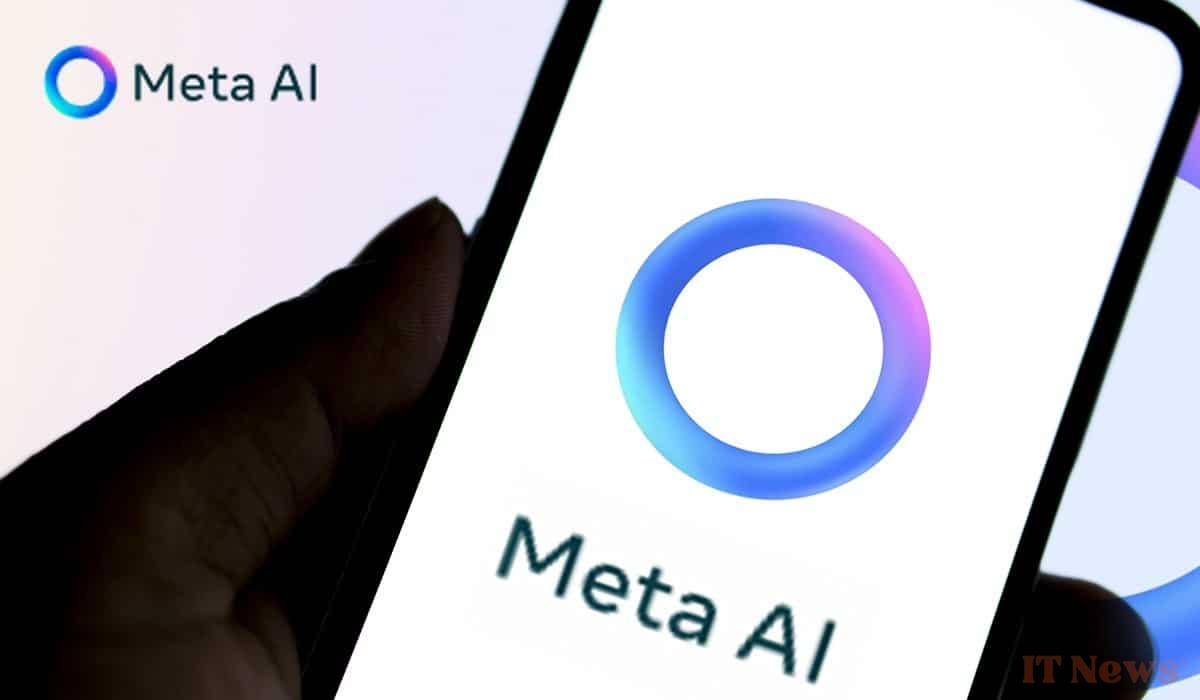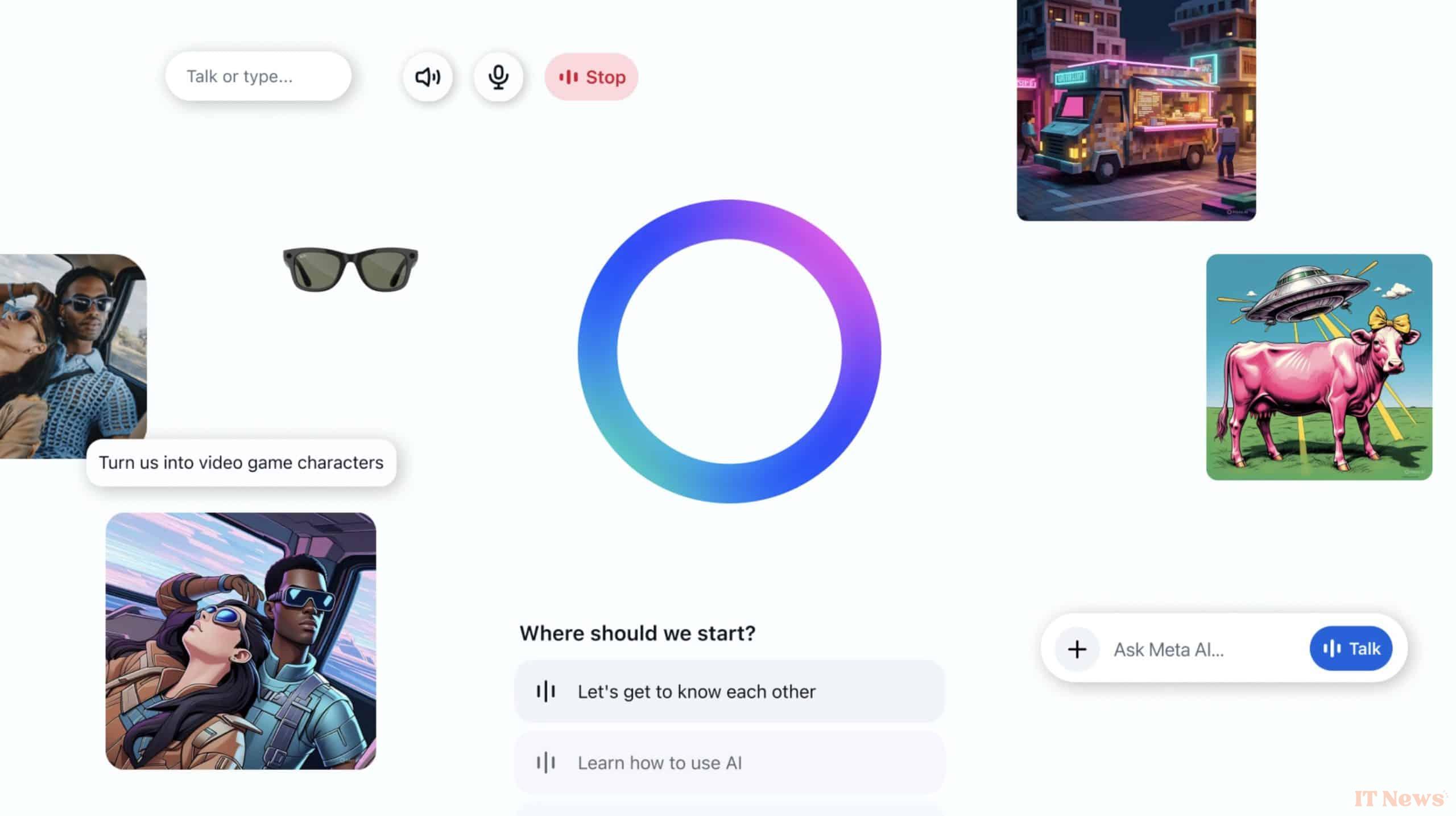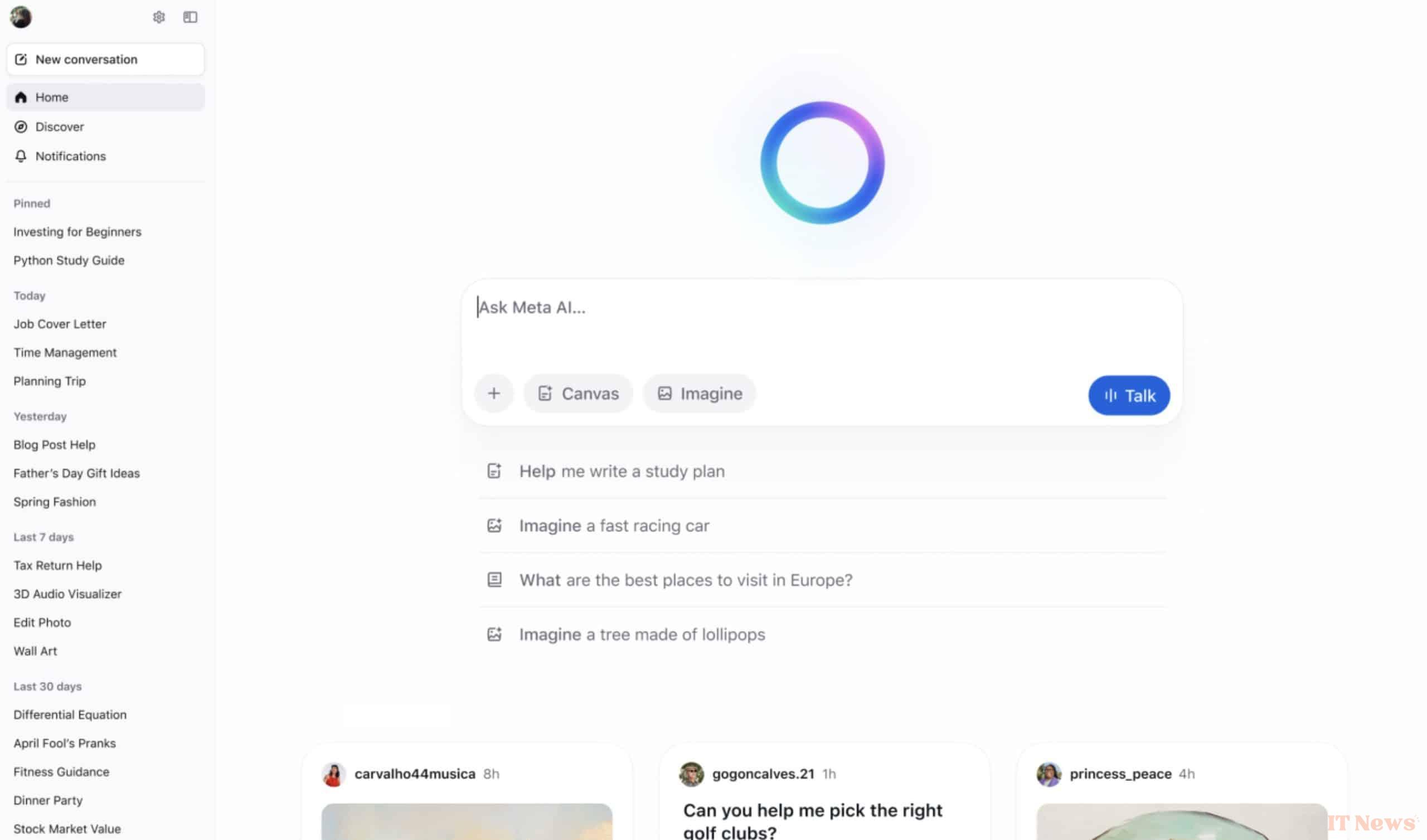While OpenAI has just announced new features this Monday, April 28, some of which should even compete with Google Shopping, Meta seems to be slowly catching up.
While Meta has already launched its linguistic model in 2023 with LLaMA, whose version 4 released at the beginning of April is very promising, Mark Zuckerberg's company had been very discreet until now.
But, faced with competitors like OpenAI or Google Gemini who are taking up more and more space, Meta has no other choice but to go even further...
A difficult place to take for Meta
While OpenAI has positioned itself exclusively on tools related to artificial intelligence, Meta has until now been in a delicate situation.
The various AI solutions offered by the company were until now available through Meta's social networks such as Facebook, WhatsApp, or even Instagram.
Nevertheless, the market With social media becoming increasingly competitive for Meta, and with rivals like TikTok attracting more users every day, Meta is struggling to gain traction...
With Meta's latest announcement from Meta this Tuesday, the company could well gain new market share...
A direct competitor to ChatGPT
It's now official: Meta is entering head-to-head and direct competition with OpenAI's ChatGPT. Indeed, the new Meta AI application, which works with the latest version of LLaMA 4, should not require connecting to one of the company's social networks.
In addition to the conversational use that has been democratized by OpenAI, Meta AI should integrate a "Discover" tab where it will be possible to share one's use of artificial intelligence with those close to them.
While the social dimension remains important for Meta AI, the application should not stop at this use...
A fully personalized AI?
To stand out from its competitors, Meta AI intends to use all the data that has been aggregated by its users in recent years, including for European users.
On April 14, Meta announced that it was resuming a project to collect public data to train its artificial intelligence model. This means that public data from profiles on Facebook, Instagram, and WhatsApp can be used, unless there is a request for non-exploitation.
While Meta AI should limit itself to public information from users, this is a real added value that would allow the application to provide a very advanced level of personalization.





0 Comments